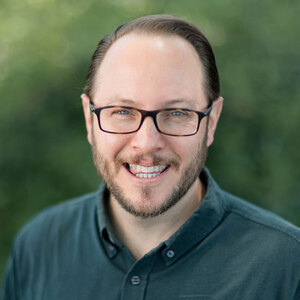Imagine that you saw someone teaching one-thousand people in a field. “Wow,” you might think, “that person has quite a following.” Normally, we would quickly recognize that this person is a teacher, for good or for bad. The problem is that in our age of social media, we have all become such teachers. James, on the other hand, tells us that “not many of you should become teachers” (Jas. 3:1). Naively, we can think this means that “not many of you should be called teachers,” as if we are the ones who determine what counts as a teacher. Instead, we are warned against becoming teachers, because, James asserts, “for you know that we who teach will be judged with greater strictness” (Jas. 3:1). Let me suggest that one of the side-effects of social media is that Christians of all sorts have blindly become teachers, often propagating misinformation, division and discord. This, it turns out, is not a minor sin.
The book of James continually warns against living our lives according to the way from below, which is unspiritual, earthly and demonic (James 3:15). This is not solely referencing the accuracy of our teaching and beliefs, but is addressing the way we live and speak. When James introduces us to the way that is unspiritual, earthly and demonic, he tells us that it is the way defined by selfish ambition and jealousy, often the sins we discover driving our “hot takes” on theology, ministry or politics online. Importantly, James reveals how to discern those who have embraced this way of evil in the world. But if I were to guess, it cuts closer to home than we might like to admit. James points to the way we use our words as the sign of where we are living from – from God or from the world, the flesh and the devil.
Throughout James we see this warning about how our tongues, and therefore our words, depict where we come from. This, of course, he gets from Jesus, who told the scribes and pharisees, “You are of your father the devil, and your will is to do your father’s desires. He was a murderer from the beginning, and does not stand in the truth, because there is no truth in him. When he lies, he speaks out of his own character, for he is a liar and the father of lies” (John 8:44). If someone lies, they are revealing where they set their hope. Their lies reveal where they are hoping to find power and how they are willing to advance themselves in the world and by their flesh.
In James we find this focus advanced, helping us to discern our own motives, our own desire to be teachers of the flesh, and how to discern others who are wielding themselves, rather than Christ and his Word. James declares, “Know this, my beloved brothers: let every person be quick to hear, slow to speak, and slow to anger; for the anger of man does not produce the righteousness of God” (Jas. 1:19). Likewise, and quite a bit more harshly, “If anyone thinks he is religious and does not bridle his tongue but deceives his heart, this person’s religion is worthless” (Jas. 1:26). In many ways, James uses one’s speech, which in our day includes social media posts and comments, to name whether someone is living from God or from the world, the flesh and yes, the devil.
It is not unusual to see Christians demean other Christians online, calling them names rather than engaging their beliefs, and by putting them into a group of “obviously depraved” positions they don’t understand. Instead of speaking about them as brothers or sisters in Christ, they think they can wield their words against them. The “tongue is set among our members, staining the whole body, setting on fire the entire course of life, and set on fire by hell” (Jas. 3:6); the tongue is “a restless evil, full of deadly poison” (Jas. 3:8). Social media has become the place where people whose “passions are at war” within them (Jas. 4:1) can go to vent their wrath and rage, undermining God’s work of reconciliation among his people and advancing a way that James claims derives from the world, the flesh and the devil. A way, obviously, that is antithetical to Christ and the cross.
So as we consider how we communicate, particularly online, in this present evil age (Gal. 1:4), let us consider how our words bear witness to where we come from – either from God or from the world, the flesh and the devil. Have we shared news that has turned out to be false? Then repent, apologize to your followers and commit to not sharing anything you have not researched well. Have you rejected a view without actually learning about it, and weighing it on its own terms, or have you simply found it useful to be able to write-off others by using labels you have not spent time researching? Repent. Throw yourselves on the mercy of God, and recognize how you have failed to be honest with yourself and others. Have you used hot-button terms that generate reactions in others, not because you have read and understood those who affirm them, but because you know that people will back you and validate your rage? Seek the Lord, repent, and see how you have not sought the way from above – the way of Jesus – which James tells us is pure, “peaceable, gentle, open to reason, full of mercy and good fruits, impartial and sincere” (Jas. 1:7).
When you teach your followers, you are a teacher, it does not matter if you accept that identity or not. It is probably worse if you don’t, because then you are just denying the truth. Have you embraced a position in the people of God that is not yours to embrace? Are you willing to bear the judgment of God for what you have disseminated? Consider carefully how you interact online. False teachers are not simply those who teach false doctrine; false teachers, biblically, are also those who teach in a way that does not align with the way of Jesus.
“The aim of our charge is love that issues from a pure heart and a good conscience and a sincere faith. Certain persons, by swerving from these, have wandered away into vain discussion, desiring to be teachers of the law, without understanding either what they are saying or the things about which they make confident assertions.” (1 Tim. 1:5-7)
Kyle Strobel is associate professor of spiritual theology and formation at Talbot School of Theology, şÚÝ®ĘÓƵ, and is the co-author of the book The Way of the Dragon or the Way of the Lamb: Searching for Jesus’ Path of Power in a Church that has Abandoned It.
 şÚÝ®ĘÓƵ
şÚÝ®ĘÓƵ

.jpg)
.jpg)

.jpg)